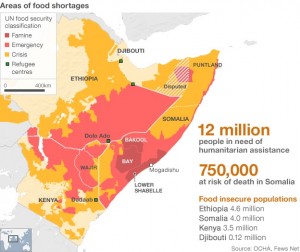That’s the title of a forthcoming article of mine (co-authored with Chris Barrett, Maren Elise Bachke, Hope Michelson, Sudha Narayanan, and Tom Walker) in World Development, in which we lay out a conceptual framework to study the participation of farm households in agricultural value chains in developing countries and survey the recent empirical evidence on the topic.
Here is the abstract:
Supermarkets, specialized wholesalers, processors, and agro-exporters are transforming the marketing channels into which smallholder farmers sell produce in low-income economies. We develop a conceptual framework with which to study contracting between smallholders and a commodity-processing firm. We then synthesize results from empirical studies of contract farming arrangements in five countries (Ghana, India, Madagascar, Mozambique, and Nicaragua). The resulting meta-narrative documents patterns of participation, the welfare gains associated with participation, reasons for nonparticipation, the significant extent of contract noncompliance, and the considerable dynamism of these value chains as farmers and firms enter and exit frequently.
